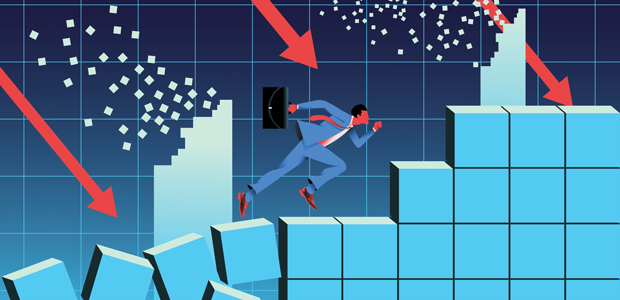
Silicon Valley Bank Closure: What To Expect
Silicon Valley Bank, the bank of many of the world's most powerful tech investors, collapsed on Friday March 10th, and was taken over by federal regulators, becoming the largest U.S. bank to fail since the 2008 global financial crisis.
Naturally, this has sent shockwaves throughout the tech community, but as of last Monday HSBC UK announced that it was buying Silicon Valley Bank UK for £1, and the deal protected £6.7 billion in deposits. In speaking to the BBC, HSBC boss Noel Quinn said the deal had been "too good an opportunity to miss," adding that "a crisis in one institution did not become a systemic crisis."
Gerard Grech, CEO of Tech Nation, a government-backed organisation serving the UK scale-up tech ecosystem, added, "Protecting UK deposits will help smooth the transition for many. It protects a generation of high-growth and high-impact companies. I do believe that such situations make the ecosystem even more resilient.”
What does this mean for the UK tech world?
GlobalData fintech thematic analyst Stephen Walker described the HSBC takeover as a big, trustworthy bank coming to save the UK tech sector.
The Bank of England ensured the public that no other UK banks had been "materially affected" by SVB's collapse, adding that the banking system remained "safe, sound, and well capitalised".
Chancellor Jeremy Hunt said, "We have built over the last decade the third largest tech economy in the world, only after China and the United States, so it's very important to us as a country that this sector thrives."
Although this has been understandably stressful and anxious for anyone with investments and ties to SVB, the HSBC purchase will hopefully provide some alleviation for those panicking over what lies in store.
What exactly happened in Silicon Valley?
Four decades after its creation, Silicon Valley Bank was the fourth largest bank in the US, yet it took less than 48 hours for it to fall apart.
"This is the second biggest bank failure that's ever happened in the United States," says Ben Eisen of the Wall Street Journal.
Coming off of 2021 which was SVB's most profitable year to date, fast forward to today, and as interest rates skyrocketed, this in turn made it more difficult for customers to raise money through share sales or private fundraising. This subsequently put a lot of pressure on the SVB, resulting in more clients withdrawing deposits that created a snowball effect that exploded last week.
Alison Greenberg, a SVB client said about speaking to a venture capital investor, "He was out of breath like he'd just run a marathon, and he said take your money out of SVB. Go into your account and take out your money as soon as possible." More and more clients and tech startups continued to pull their funds, which was the beginning of the end for SVB as the bank's stock prices plummeted. By March 9th, customers had tried to withdraw over $42bn in deposits.
Quick to address the subject, president Joe Biden assuaged listeners by saying "Americans can have confidence that the banking system is safe. Your deposits will be there when you need them." He also added that any investors in the banks will not be protected, saying “they knowingly took a risk and when the risk didn’t pay off, the investors lose their money. That’s how capitalism works.”
What are the potential outcomes?
For the time being, it appears that SVB will continue to operate under the ownership of HSBC, who would progressively conflate it with their own business. As for the thousands of customers and tech founders who are potentially dealing with disastrous consequences, their deposits will ultimately be protected, and no public funds will be utilised in any part of the acquisitions.

